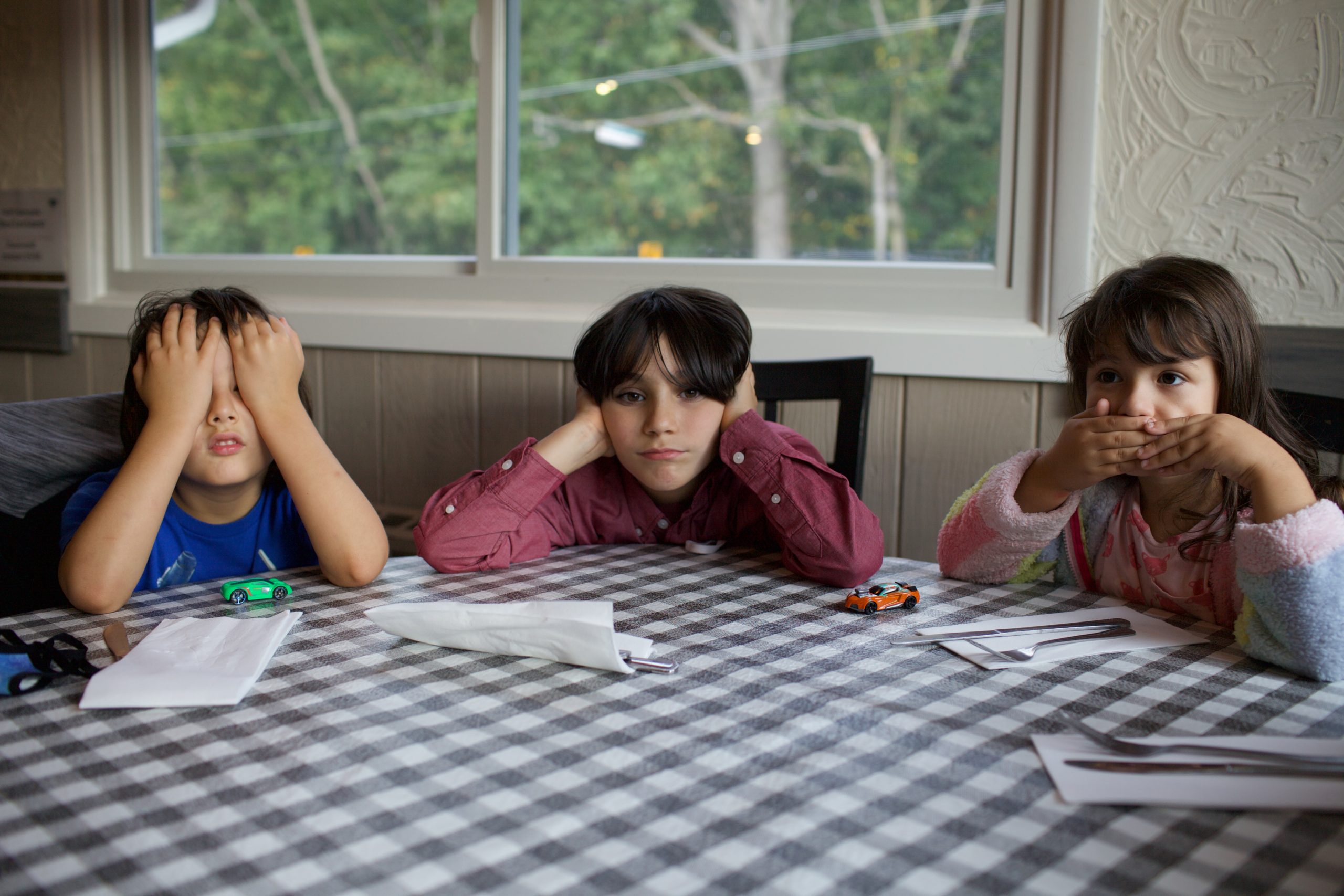May 31st, 2022
How to Foster Genuine Sharing
Anywhere there are kids, there is a chorus of parents, instructing, hoping and even bribing their kids to share. We have made the mistake yet again, that sharing is something that can be taught. In reality, sharing is something that takes time, practice and a lot of support from mature caregivers. With a little bit of perspective and understanding we can focus our energy on supporting and bridging this important social skill, until it can unfold naturally in our children.
How do Kids “Learn” to Share?
It’s really important to remember that children are immature. Young children, under the age of 6 (even older for the sensitive kids) don’t have the neuro capacity to temper their emotions. Their prefrontal cortex is underdeveloped, and they can only hold one emotion at a time. Frustration is usually the emotion fueling the fight or disagreement, as it’s the emotion we feel when we want something to change or be different.
As mature parents, we need to come alongside our children, lend them our mature brains, bridge their immaturity and allow nature to do the rest.
It’s common for parents to try to force their kids to share – sharing is caring after all, right?
Right, but wouldn’t it be better if our kids actually wanted to share?? If you really think about it, do you enjoy handing over your favorite possessions for others to do who knows what with? This is a common pattern in modern parenting – putting expectations on our kids that we do not fulfill ourselves as mature adults. I know I know, the intention is pure, but there is a much better way!
The truth is, forcing sharing actually causes an internal sense of lack and possessiveness. This can lead to tendencies later down the road as older children and adults to NOT want to share.
When our children express that they do not want to share – they are simply speaking up for themselves and something they care about. When we force them to share, we are conveying that what they care about doesn’t matter, and what others care about is more important. This may feel familiar to other mamas out there like me who spent a few decades self-sacrificing to please others. Well this is where those tendencies start, and as the parents we have the choice to do things differently.
How to Bridge Sharing
Instead of trying to encourage children to share, allow kids to play with a toy until they are finished playing with it. If child #2 tries to take the toy, let them know that Child #1 is playing with it and it will be their turn when Child #1 is finished.
You can tell Child #1 that when they are finished Child #2 would like a turn. This doesn’t mean Child #1 will definitely hand it over when they are finished, but it’s worth a shot. Remember children can only focus on one thing at a time, and they can lose interest all of a sudden and forget all about handing it over to child #2.
What to do When Things Get Ugly
Don’t try to figure out who did what, who’s right and who’s wrong. Intervene in a way that doesn’t take a side. Hopefully this comes as a relief as there’s not usually anyone in the wrong, kids are just being kids. Instead, acknowledge that you see that they are both hurting or frustrated and you will help them figure it out.
Ideally spending a moment with each child, listening to how they are feeling will be the best way to support them through their big emotions.
Don’t force “I’m sorry”. Forced apologies are a lot like forced sharing. They may seem to get the box checked at the moment, but what’s more important is what’s going on under the surface for the child. We want our children to actually FEEL sorry, not just say it. This is unlikely to happen in the heat of the moment, especially for our young ones.
Allowing the children to have a little bit of time to themselves or with a caregiver will allow true caring to come to the surface. Once the children are back together, you can help draw out the apology by asking your child, “ do you have any sorrys in you for Tommy?” This will help your child build a brain that says sorry from a place of caring, not from a place of wanting to get out of trouble.
I also believe that it’s ok for a parent to apologize for the child. It wasn’t until my daughter was four years old that I started drawing her sorrys out. I still frequently apologize for her when it’s obvious she acted out of immaturity and doesn’t really understand what’s going on. If an adult has a problem with you apologizing for your child and they demand an apology from your child – I’d run for the hills. This is a completely unreasonable expectation to put on children. We are trying to break patterns and grow whole humans, not keep adults comfortable.
If two kids are exceptionally explosive, going outside or changing the activity may be necessary to change the tone of the interaction. Taking note of how they are feeling emotionally is important. Are they going through a big change? Is there any stress on their relationships with their caregivers? Interacting with other immature beings may just be too much if they are feeling disconnected from their caregivers for any reason.
Bottom Line
Young kids have not yet developed a deep sense of caring for others. This is normal and temporary! Model your deep caring for them and others, lend your maturity to them when needed and allow the rest to unfold.
Thank you so much for reading! Please check out my free gifts for you, here!

